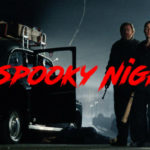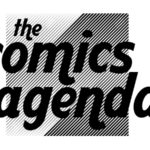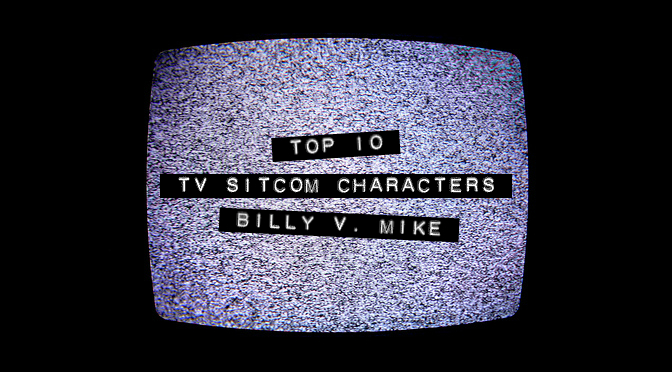
Sitcoms are like the dessert of TV watching. After a long day, it’s where we go to rest and unwind, letting chaotic comedy worlds wash over us with the unspoken assertion that all will be well by the end of 30 minutes. The characters from these shows become our friends, our family, and they mean as much to us as anyone else we’d invite into our living rooms once a week. There’s a reason the Seinfeld finale was the most watched show of all time. In honour of these common friends, we start off our first Billy v. Mike column with our list of Top 10 TV Sitcom Characters.
In true Billy v. Mike style, this article was written by two longtime friends obsessed with movies and TV. Only live-action sitcom characters were eligible, and only one per franchise. These are our own opinions, though they still might be wrong.
-
Captain Ray Holt (Brooklyn Nine Nine, 2013)
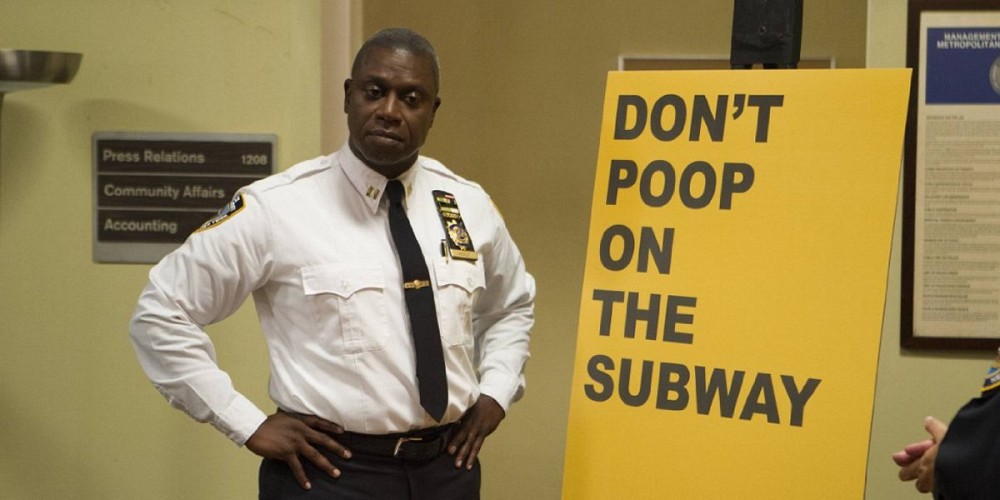
Michael: Andre Braugher is the Leslie Nielsen of our time. He’s probably even better than Nielsen, hard as that is to even imagine. Braugher is an actor who was known for his dramatic roles — reaching much higher heights than Nielsen in that regard — but attacked his chance to do comedy with aplomb. His intense deadpan and thunderous, Shakespearean voice are perfect for punchlines about his addiction to a Candy Crush-like app.
Billy: By making the move to comedy in Brooklyn Nine Nine, Braugher’s Holt represents everything great about the development of the modern sitcom character. He’s wacky without being ‘wacky’ in the traditional sense. An absurd concept, the humour comes from his intense seriousness and the acting choices of a developed performer making even the most mundane of lines a comedic smorgasbord.
Michael: Holt is a no-nonsense Police Captain — who evolves into a some-nonsense Police Captain — and Braugher couldn’t be more perfect for that role. If this was a list of best TV police officers Braugher would have been on it already thanks to his tour-de-force performance as Frank Pemberton in Homicide: Life on the Streets. So the show knew that with him they’d get credibility and believability, but what Braugher brings to the role is his gameness. He’ll say and do anything and the writers have found ways to put that to the test. They haven’t found a ridiculous sentence yet that Braugher’s amazing voice can’t wring the maximum amount of laughs from.
Billy: Beyond that, he’s a real character. Raymond Holt has a real history and drive that makes his character great. When he comes up against persecution for being black or gay on the force, we don’t merely laugh at his intense voice or emotionally minimal performance. We really feel for him too. He’s a man with a genuine soul, and his desire to shape the Nine Nine into something great is the lynchpin of the show.
-
Max Blum (Happy Endings, 2011)
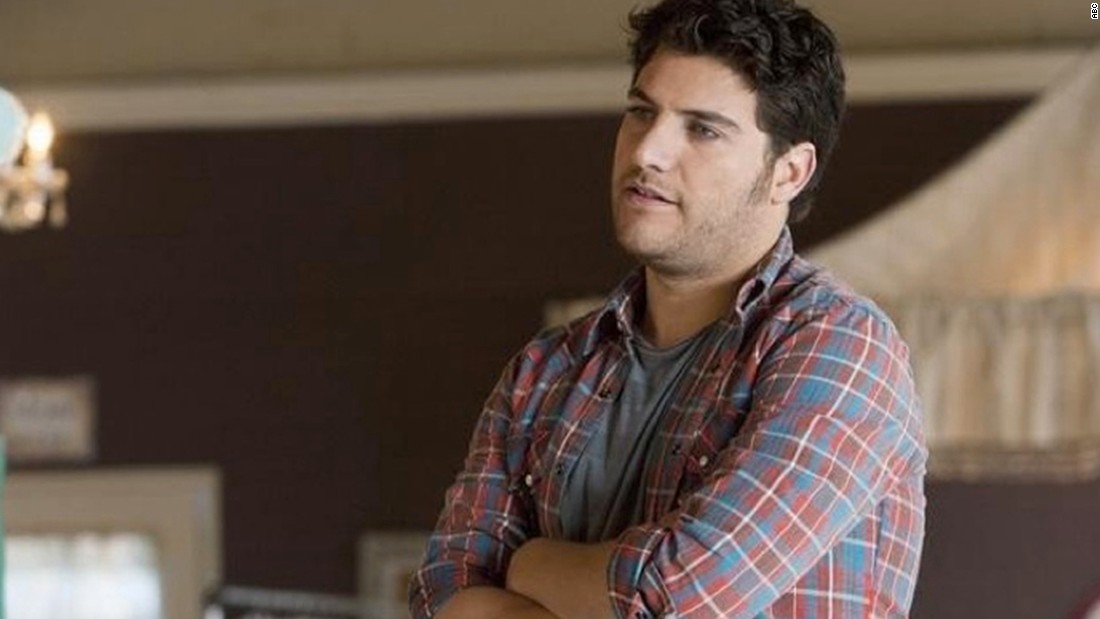
Billy: Max is a character I’m least familiar with on this list. Not having actually watched Happy Endings yet myself, I’m trusting Michael about his importance in terms of representation and likeability. I’ve had a few handpicked episodes to learn about Max as a character.
Michael: I fought for Max Blum to be on the list for three reasons. 1) Adam Pally is hilarious, 2) Happy Endings is underrated and 3) Max is an important character to see on television. He’s part of a basic sitcom ensemble (six friends who spend a lot of time hanging out and barely working) but he’s not treated like an archetype or a stock character. He isn’t “the gay one”. He’s sarcastic, lazy, poor, and narcissistic. He’s gay the same way the other characters are straight. It’s just a part of who he is. He’s nowhere near the first gay character on television and he’s definitely not the first one who wasn’t treated like a walking stereotype. But he is unique in the sense that he doesn’t come off as a character added to the show just to have a “gay character”. He’s a progressive sitcom character.
Billy: Unlike earlier sitcom characters like Will or Jack from Will & Grace, Max’s sexuality as a gay man was less of a character trait than it was a character choice. He acts identically to the trope of the straight white male, and Happy Endings used that to show the growth of writing a character as gay into something that doesn’t have to define a character at his core.
Michael: Since Happy Endings was cancelled — it got 3 seasons but it still felt way too soon — Adam Pally has guest starred on a few shows and even joined the cast of The Mindy Project for a while. He’s been funny on all of them, but no show seems to play to his strengths as well as Happy Endings did. He does the uncouth and living in squalor as well as he does endearingly nervous romantic gestures. Max is a funny and important character and we’re lucky we managed to get 3 seasons of him.
-
Leslie Knope (Parks & Recreation, 2009)
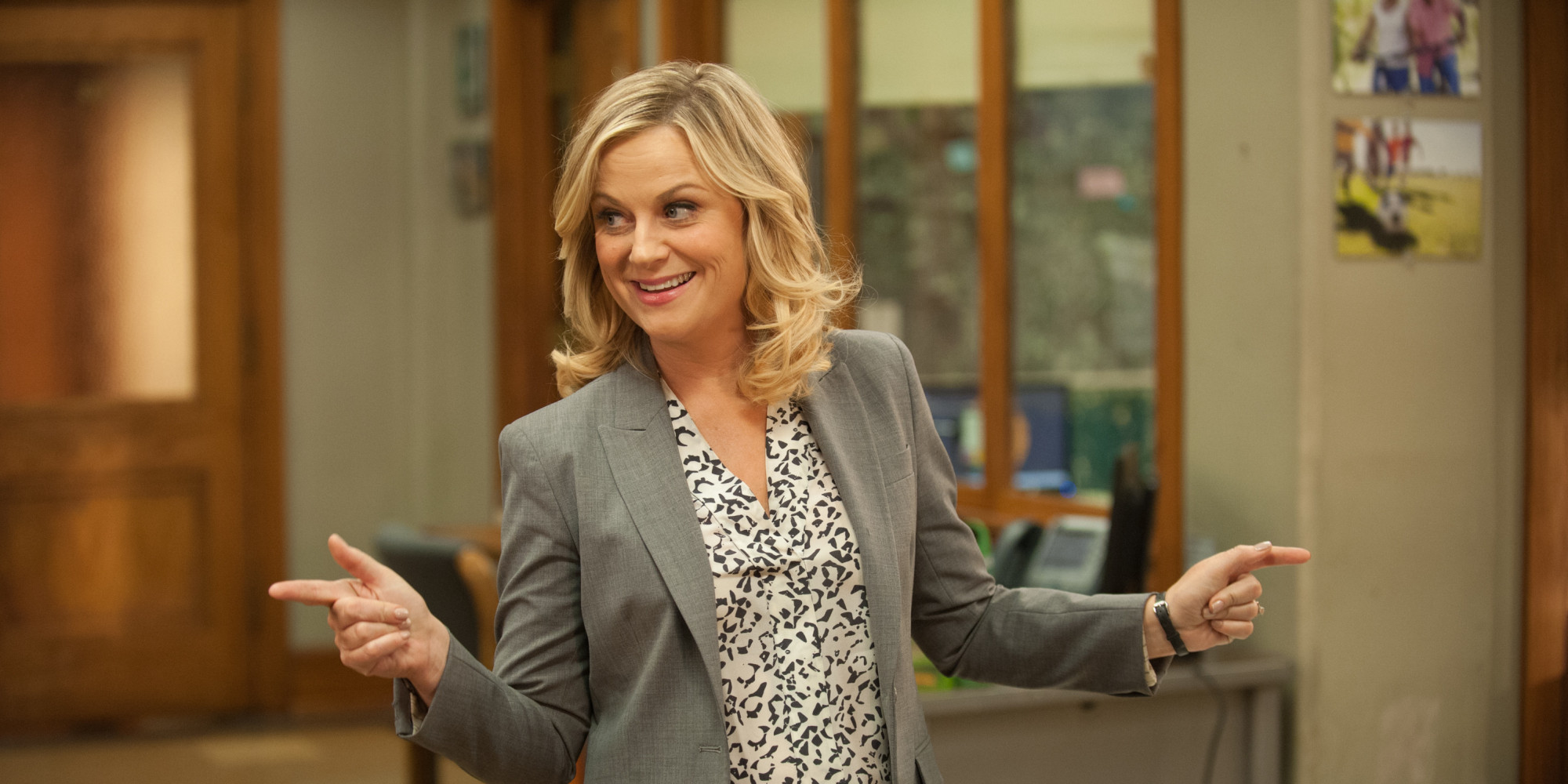
Michael: Amy Poehler is a treasure. She took a character which started out life as an off-brand Michael Scott and developed it into something special. Ignore the bumpy, six-episode first season. Everything from season 2 on is pure Poehler-infused joy. Leslie Knope is a positive, energetic, community-minded force for good.
Billy: I’m one of the ones who got knocked off by the first season of Parks & Rec, not understanding its nuance and feeling it more as a less original take on The Office than it’s own show. When I got back on board a few years later, it was a completely different animal, revealing a bright and shining gold nugget at it’s core. All thanks the centre of the show: Leslie Knope.
Michael: Parks & Recreation was loaded with memorable characters. The show reminded people how insanely funny Rob Lowe can be, it basically launched Aubrey Plaza’s and Chris Pratt’s careers, and it created Nick Offerman’s Ron Swanson. But whenever I think of Parks & Rec I always think about its heart. For a solid 2 or 3 seasons it was both the funniest show on TV and the sweetest. That was due to the centre of the show, Leslie Knope. It’s the rare workplace comedy that shows anyone who actually likes their job, let alone someone who is incredibly passionate for it. Knope believed in community and helping others and it was refreshing to see such a positive person on a sitcom who was actually funny and wasn’t just the butt of every joke.
Billy: Optimism and hope. Those are the traits that best describe Amy Poeler’s groundbreaking character from Parks & Recreation. She was someone who would never stop, never give up, and never actually become corrupted by the tarnished and disheartening business of politics. With a name like Knope, our answer to whether she deserved a spot on this list was definitely yes.
-
The Bluths (Arrested Development, 2003)
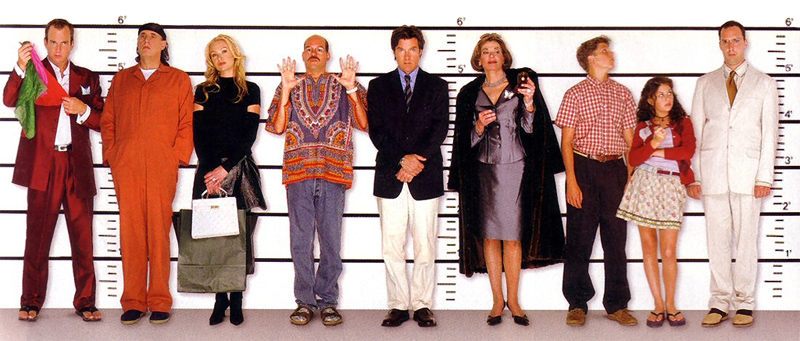
Billy: I have had trouble with this pick. I’ve probably watched Arrested Development more than any other television show. I’ve lost friends from singing Motherboy or the Hot Cops jingle in public. Choosing one character from this series to spotlight is an impossible task.
Michael: This one’s a cheat but, whatever, it’s our list. You could basically fill out a top 10 using strictly Arrested Development characters. But we’re not doing that. I think it’s fair to put the toxic family as a single entry because they’re so monstrously co-dependent. It’s fitting that they’d share a spot.
Billy: I almost picked Gene Parmesan just for the hell of it. After much deliberation, however, I’m going with Lucille Bluth, the matriarch of the family. It’s safe to say that none of the Bluths would be as messed up as they are without Lucille, and her detached brand of mothering was an incredible cog in the machine. As a woman, she’s unapologetically conniving, ruthless, and manipulative. It’s like she gets off on being withholding. She’s the ultimate villain. Jessica Walters deserves every ounce of praise she got for the role.
Michael: I want to specifically talk about Michael Bluth. The ostensible straight man of the show, our entry point into the family, could have been boring. On any other show Jason Bateman would be a kind, charming man trying to escape the screwballs around him. Instead, that’s who Michael thinks he is. In reality he’s a Bluth through and through and it’s to Bateman’s and the writers’ credit that we realize this slowly over the course of the series. Michael can be as awful as Lucille, as distant as George, as selfish as Lindsay, as oblivious as Buster and as desperately needy as GOB. He encapsulates all of their bad habits and ends up being worse for it because he slathers on top of it a nice layer of superiority. Season 4 may have been pretty shaky overall, but the final moment was pitch perfect and something we’ve been subconsciously hoping for over the entire series.
-
Niles Crane (Frasier, 1993)
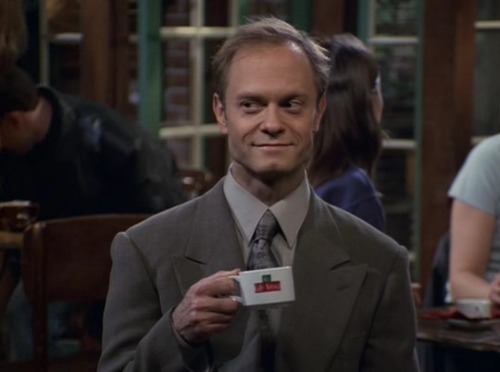
Michael: Niles is so good we’ve used him as our one pick for Frasier and he basically became our default pick for Cheers by relation. David Hyde Pierce was born to play high society types and his Niles helped make Frasier seem like the more easygoing of the two snobby brothers. Pierce comes off as an East Coast Hugh Grant type and his theatre experience was instrumental in bringing Niles to life.
Billy: Niles was one of only two characters Michael and I initially agreed about for inclusion on this list. As the younger, more persnickety brother to Kelsey Grammer’s Frasier, I think many readers will agree with his inclusion as well. Niles’ neat, organised, and elegant approach to life and his snobbish Seattle sensibilities made Frasier feel distinctly new. Taken on his own, Frasier Crane was still a holdover from his days on Cheers. Paired with Niles, he was a character in full, as each Crane brother presented perfect foils for each other. Not to mention the uncanny physical resemblance David Hyde Pierce has to Kelsey Grammer. They could play brothers in real life.
Michael: A lot of Frasier episodes come off as half hour farcical stage play — reinforced in the set design — with a few of them tilting too far into Three’s Company style misunderstandings. Regardless of which end of the spectrum the episode was on, Pierce was always on fire as Niles. His chemistry with Kelsey Grammer was undeniable, both of them having the lived-in relationship of true brothers. Nobody on the show was more of a breakout character, aside from the dog. Whether it was the repeated references to his off-screen wife Maris or his initially unrequited pining for Daphne, Pierce made the most of it all and helped push Niles to the forefront.
Billy: The episodes where Frasier and Niles teamed up are some of my favourites, and his eternal love affair with Daphne carved a heart into the show. While Niles struggled with his love for Daphne, he remained faithful to his cold and invisible wife Maris. His final line of the series, “I’ll miss the coffees”, is performed with a subdued grace and such profound honesty, it really captured my emotions in finally having to say goodbye. For those still missing the uppity younger Crane, Brandon B.’s mini-comic Blood King brings the true spirit of the character to life in a Lovecraftian horror tale.
-
George Costanza (Seinfeld, 1989)
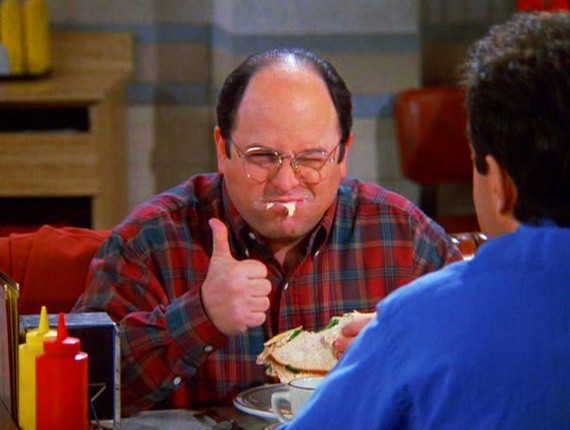
Michael: When choosing a character from Seinfeld — because how could a Seinfeld character not make the list? — it was a close call between Elaine Benes and George Costanza. Despite my eternal love for Julia Louis-Dreyfus I went with George. I chose him because he’s the greatest sitcom character of all time and one of the best characters ever on television, period.
Billy: George is a shitty human being. Of course he is. Self centred, paranoid, he’s a man whose most identifying moment is killing his wife-to-be by buying the cheapest envelopes he could manage. And yet, his entertainment value as a character is endlessly fascinating. Like watching a train wreck, the life of George Costanza is something you just can’t look away from. He’s someone you like, but also kind of hate. Love to watch him, would never want to sit next to him at a restaurant.
Michael: George is a perfect amalgam. He’s part TV best friend, part Jason Alexander’s whimsical camp, and a large part Larry David’s selfish neuroses. The genius of the character was that, in any given episode, he could be the hero or the villain. We would cheer him on or hope for him to fail and it never felt incongruous. He was a human. A sleazy, selfish, kind of awful human, but a human nonetheless. The fact that Jason Alexander hasn’t had a truly successful TV show since Seinfeld ended is sort of a testament to how great the character is and how perfect Alexander was as him. He got it right already, we don’t need to see him try again.
Billy: We wouldn’t have series like It’s Always Sunny in Philadelphia without George. He’s also the reason we have Festivus, and if a TV character can actually make people consider Christmas obsolete in favour of worshipping a metal pole, there’s got to be something gone right.
-
Dorothy Zbornak (Golden Girls, 1985)

Michael: One of the things you’re most likely to hear if Golden Girls comes up is a surprising amount of people saying “you know, it’s actually pretty good”. It’s actually more than pretty good. It’s a very funny show with four powerhouse performances from a murderer’s row of great, older actresses. None were more solid than Bea Arthur as Dorothy.
Billy: Amelia wouldn’t let me live if I didn’t include Dorothy on this list, but I wasn’t fighting her and neither was Michael. Both a pal and a confidant. Dorothy Zbornak of Golden Girls was a shining example of women in comedy with all the sass and side-eye of cynical nineties appearing years ahead of its time. Dorothy was the best of those four women we call the Golden Girls, a smart-mouthed and aggravated core of the group compared to (superficially) one-note characters like Blanche and Rose. No woman perfected the side-eye more.
Michael: Dorothy was the smart, reasonable centre of the series. She was responsible, intelligent, and sarcastic… so pretty much exactly what you’d expect Bea Arthur to be in real life. It’s hard to choose between her, Estelle Getty’s Sophia, Betty White’s Rose or Rue McCLanahan’s Blanche, but there’s something to be said about a solid foundation. Without Dorothy’s grounded personality it wouldn’t be as fun to see the other characters’ antics. If you’re going to make a show starring four middle-to-late-aged women living in Florida, there’s really no better option than Bea Arthur and she absolutely knocked the role of Dorothy out of the park.
Billy: In Golden Girls, Dorothy managed to be an emotional centre that rose above her age to be a vibrant, sexual, determined woman who demanded to be taken seriously. The episode where her doctor dismisses symptoms of an illness as being “old age” is an episode that sits with me to this day. Add in a loving relationship with her mother, a not so loving relationship with her ex-husband, and the supportive (though frustrating) environment with her friends, and it all adds up to the perfection that is Bea Arthur portraying her second feminist icon.
-
Basil Fawlty (Fawlty Towers, 1975)
Billy: There really should be more British characters on this list. The fact that there’s not is a personal embarrassment for me, but if there can only be one, Basil Fawlty obviously deserves the spot. Coming off the back of Monty Python, John Cleese wanted to make something completely different. What he achieved is a focused, manic, and intensely flawed character that drives all the comedy in the series.
Michael: There are very few series that could run only two seasons of six episodes four years apart and have the cultural staying power that Fawlty Towers has. It’s truly a testament to the show creators, John Cleese and Connie Booth, and the characters they created. None is more perfect than Cleese as Basil Fawlty, the put-upon, bundle of rage hotel owner. John Cleese is one of the greatest comic minds of his generation and Basil Fawlty is easily one of the funniest characters television has ever produced.
Billy: Basil Fawlty was the ultimate heel, coming up against endless obstacles, defeated time and time again in a world that was out to get him. The fact that it wasn’t, that every problem Basil encountered was a product of his own devising, served as fantastic dramatic irony for the audience, letting us laugh at our protagonist in the most profound way possible. What an imbecile. He has no excuse. He’s not even from Barcelona.
Michael: Fawlty Towers excelled at being a farce that amps up the frustration, crescendo-ing until Basil loses his mind. Watching Cleese yell at someone with fiery disdain is one of the greatest joys someone can have watching television. His supporting cast was full of funny actors and characters, but they were all in service to what we, the audience wanted. We want people who will push Basil Fawlty’s buttons. A flustered Cleese is a happy audience.
-
Hawkeye Pierce (M*A*S*H, 1972)
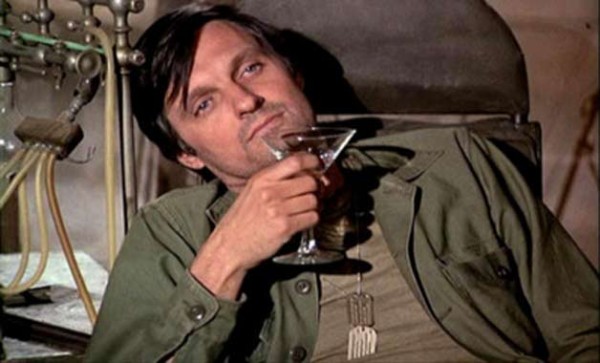
Michael: Alan Alda is an important figure in the history of television and that’s due to M*A*S*H. His work as Hawkeye Pierce is practically unparalleled when it comes to the length of time he played him and the passion he put into it. Alda’s voice in the series is so clear, it’s no wonder the show stands apart from the book and movie that it’s based on.
Billy: Hawkeye Pierce is really the only character on this list that’s so likely to break your heart. Set in an army hospital during the Korean War, M*A*S*H wasn’t set up with a premise that naturally screamed fun and good times straight off the bat. With a satirical take on peace-nik cynicism, his joking remarks and pranks let us know it was ok to laugh, even during the war. An important message for a nation going through the horrors of Vietnam. The ease at which he could transfer those skills into real pathos and emotion means something real.
Michael: Pierce was the centre of the show. He was a wise-cracking, gifted, passionate army surgeon. You couldn’t have picked a better actor for the part. Thanks to Alda taking a larger role in the creative direction of the series, the later seasons eschew their sitcom trappings and some episodes are dark comedies or even dramas. The subject matter would be tricky for most shows, but with a character like Pierce — how can you not sympathize with a battlefield surgeon — and an actor like Alda you’ll follow the show anywhere.
Billy: There’s actually no way we could be doing this list without him, as that ability to “get real” stayed with sitcom television long after M*A*S*H was off the air and allowed comedy and drama to work simultaneously without compromising either. With potentially the saddest ends for any lead character in a sitcom ever, Hawkeye Pierce will forever be remembered for his heart, his humour, and the depth he forever added to sitcom characters that would be realised for years to come.
-
Lucy Ricardo (I Love Lucy, 1951)

Billy: There’s a reason everybody loves her. Any way you look at it, Lucy is the Queen. As Lucy Ricardo, Lucille Ball practically defined what a sitcom was with I Love Lucy, producing 181 episodes that are still watchable today. Her character was joyful, energetic, and delightfully scheming. More importantly, she was a female character with agency and had close relationships with other women as well.
Michael: A list like this just straight-up couldn’t exist without Lucy. It would be impossible. I Love Lucy was groundbreaking television and Lucille Ball was a star. It was the perfect vehicle for her, letting her go as over-the-top as she wanted. Lucy was a ball of energy and she was the perfect outlet for Ball’s physical comedy. One of the most perfect episodes of television is “Job Switching”, where Lucy and Ethel work at a chocolate factory. You’d be hard-pressed to find a piece of business on television more revered or emulated than the conveyer belt scene.
Billy: Her friendship with Ethel is one of the most notable in television history, and when the two girls got up to trouble you knew you were in for a good time. Obvious choice is obvious. Even if we weren’t doing this list backwards through time, Lucy would still be number one.
Michael: The show itself was groundbreaking and instrumental to the creation and evolution of the modern sitcom. I Love Lucy was the first series to use the 3-camera setup. Ignoring that, ignoring the emphasis on her marriage or pregnancy, ignoring the high concept stories, the main reason why I Love Lucy is so beloved is Lucy herself. Lucille Ball was a comedic force and one of the first television superstars. No one else comes close.
Sitcom Characters Honourable Mentions
Billy: I’ll admit this list isn’t perfect. I mean, how impossible is it to encapsulate over 60 years of television into only ten people? We tried! But that doesn’t mean we got it right. There are a disproportionate amount of white men on this list, which I think says as much about the way televisions are cast and distributed as it does about the characters Michael and I as 20-something white men find ourselves relating to. There are quite a few other beloved sitcom characters that belong on this list.
Michael: Larry David as Larry David in Curb Your Enthusiasm, Jeffrey Tambor as Hank Kingsley The Larry Sanders Show, Donald Glover & Danny Pudi as Troy & Abed in Community, Tina Fey as Liz Lemon in 30 Rock, Charlie Day as Charlie Kelly in It’s Always Sunny in Philadelphia, Peter Capaldi as Malcolm Tucker in The Thick of It, Jake Johnson as Nick Miller in New Girl, Christopher Lloyd as Reverend Jim Ignatowski in Taxi, Mindy Kaling as Mindy Lahiri in The Mindy Project, Ed Asner as Lou Grant in The Mary Tyler Moore Show.
Billy: Roseanne Barr as Roseanne Connor in Roseanne. Stephanie Beatritz as Rosa Diaz in Brooklyn Nine Nine. Don Adams as Maxwell Smart in Get Smart. Dylan Moran as Bernard Black in Black Books. Gary Shandling as Gary Shandling in It’s Gary Shandling’s Show. And finally, Sam Lloyd as Ted Buckland from Scrubs. I really, really, re-he-he-heeeally wanted to include at least one Bill Lawrence created character on this list, but the final cut just didn’t have room for poor, sad, acapella-loving Ted. Somehow, I think that’s fitting. Play us out, Ted.

